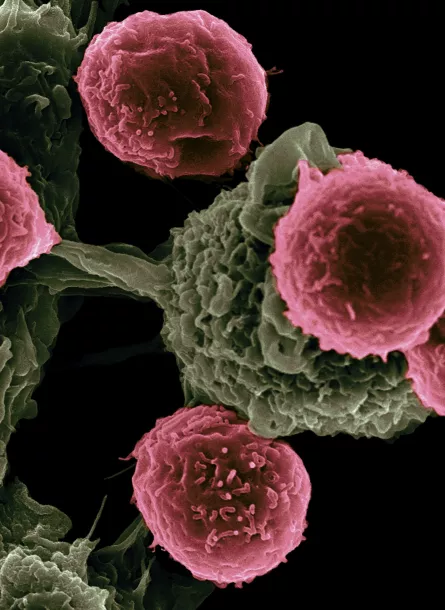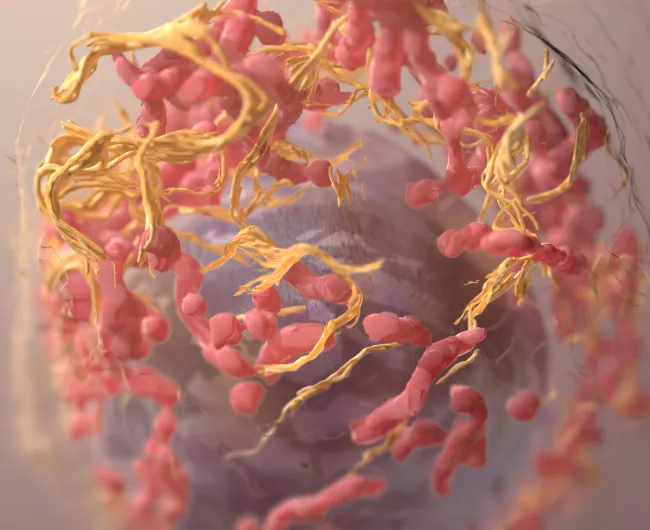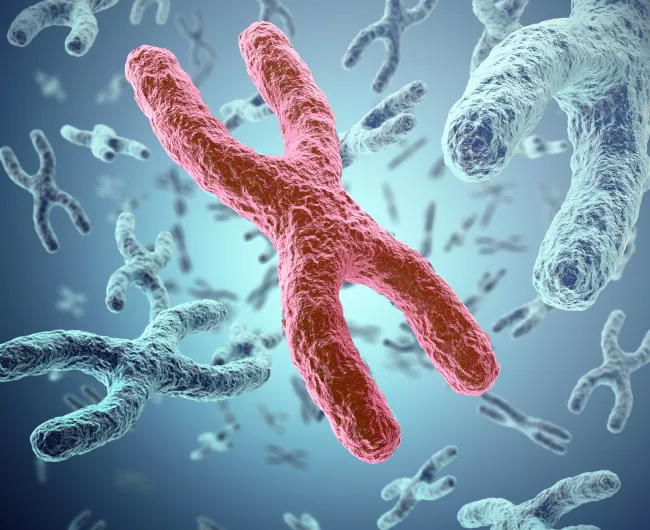
The BRAF biomarker


What is the BRAF biomarker?
The BRAF gene is present in all the cells in our bodies. A normal BRAF gene works together with other proteins to produce the normal growth and division of cells.
When there is a change in the DNA sequence of a cell, it is called a mutation. The BRAF gene mutates early in the development of cancer and signals certain cells to grow uncontrollably. This is called a driver mutation.
- A BRAF mutation is found in about 10% of colorectal cancer patients.
- The most common BRAF mutation in colorectal cancer is V600E, although other mutations in BRAF may also occur.
- A BRAF gene mutation is not a germline mutation. It is not hereditary and does not pass from one generation to another in a family. All BRAF mutations are acquired (somatic) mutations that happen randomly.

What happens if I have an abnormal BRAF biomarker?
Knowing the details of tumor biomarkers can help you and your doctor make decisions about personalized treatment with therapies tailored specifically to the characteristics of your tumor.
Fewer than 10 out of 100 colon cancers have this mutation.
If your cancer has the BRAF V600E biomarker, treatments that target abnormal BRAF mutation may be helpful.

BRAF types
- The BRAF V600E mutation is aprognostic biomarker of aggressive tumor growth. The mortality risk for patients with a BRAF mutation is more than two times higher than for those with a normal BRAF gene. Therefore, knowing about a BRAF gene mutation indicates the need for aggressive treatment.1,2
- The BRAF mutation is also a predictive biomarker, which means it predicts that your tumor is unlikely to respond to treatment with EGFR inhibitors when given alone or in combination with chemotherapy.

What treatment options are available?
If your biomarker tests show an abnormal BRAF mutation, treatments that target abnormal BRAF genes may be helpful. BRAF inhibitors are drugs that can turn off and stop mutated BRAF activity. Unfortunately, with colorectal cancer these drugs are not effective by themselves.
- For patients with the BRAF V600E mutation, BRAF inhibitors can significantly lower the risk of death when given together with one or two additional inhibitors. Patients can only receive these drug combinations as a second or third line of therapy after their tumor did not respond to chemotherapy.
- There are several ongoing clinical trials that are looking into whether patients with stage IV (metastatic) colorectal cancer can avoid chemotherapy and instead receive the combination of BRAF inhibitors along with other inhibitors as a first-line therapy.
- Clinical trial finder

What are the potential side effects of BRAF inhibitors?
Every treatment has the potential to cause some side effects. Some people may be more sensitive than others to a drug. It also depends on your other treatments, medications, vitamins, and herbal supplements. Tell your doctor about all medications, vitamins, and supplements you take.
Some of the most common side effects associated with BRAF inhibitors are headache, dizziness, fatigue, diarrhea or constipation, nausea and vomiting, skin problems, joint or muscle pain, and anemia/low red blood cell levels.
It is unlikely that you will experience all of these side effects, but you might have some of them. Call your doctor immediately if you are experiencing severe symptoms
Other biomarkers
Carcinoembryonic Antigen (CEA) BiomarkerTop resources

Christy Williams: Biomarker testing leads to successful treatment
Statistics suggested that Christy’s odds of survival were grim, so she leaned into her faith and kept a positive outlook. She tried to control what she could. And, critically, she received biomarker testing.

EPIC Act to Advance New CRC Therapies Needs Support
The EPIC Act would encourage investment in clinical trials for additional uses of existing drugs.

Colorectal cancer resources for learning and sharing
Whether personally impacted by colorectal cancer (CRC), supporting a loved one, or dedicated to educating and empowering others, these downloadable and printable resources can help.





